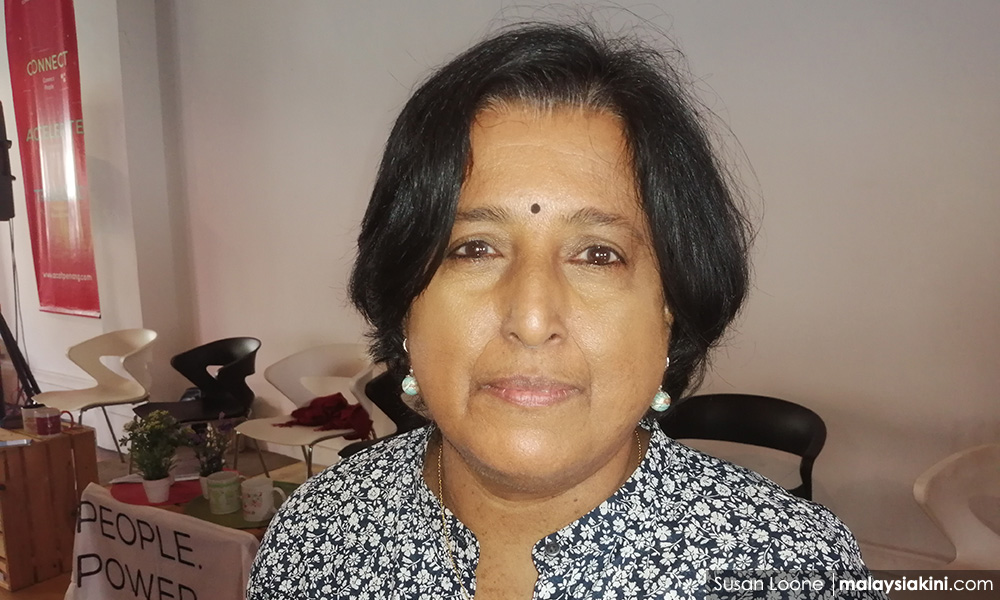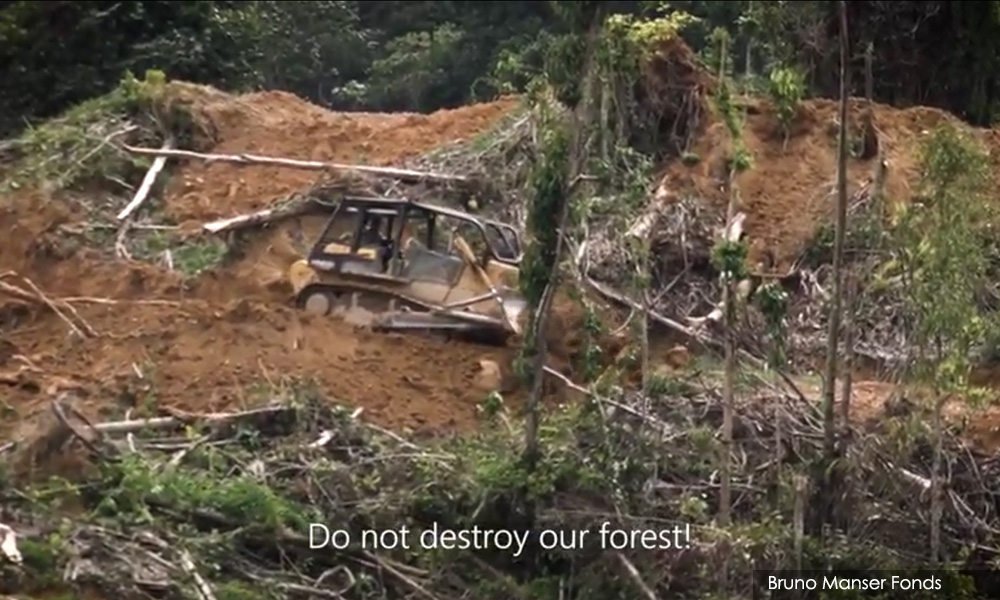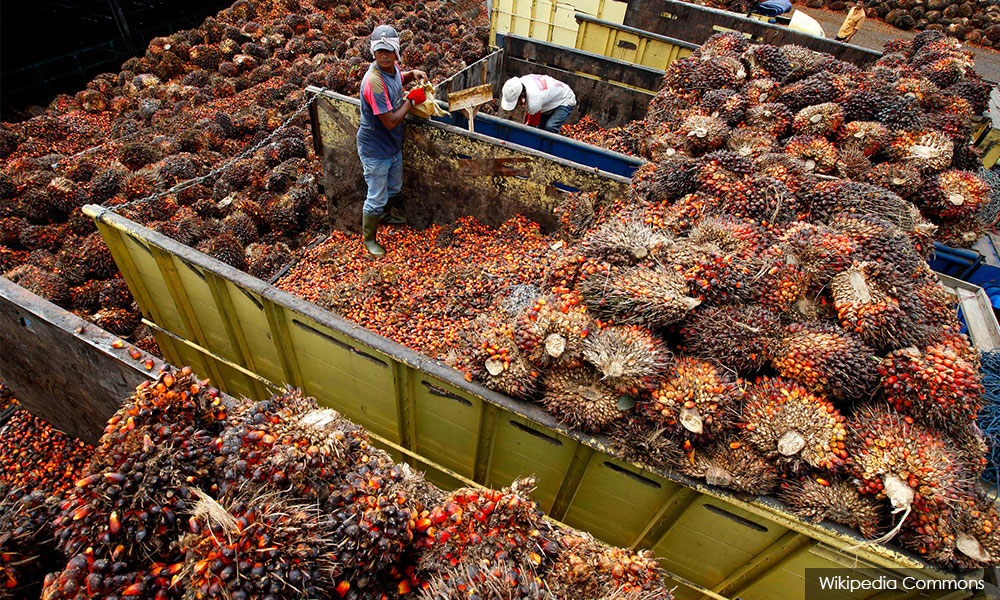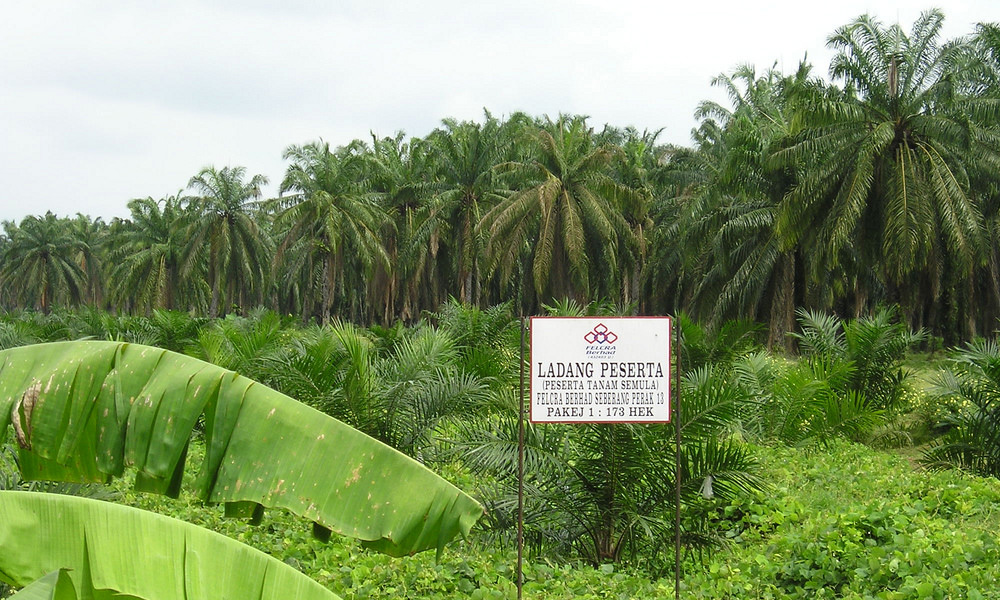
Primary Industries Minister Teresa Kok must learn the difference between the situation of small holders in Peninsula Malaysia and Sarawak before supporting the palm oil industries, said Sahabat Alam Malaysia (SAM).
Kok was told that there can be no sustainable palm oil industry if native customary land rights (NCR) continue to be encroached by big plantations companies.
SAM president Meenakshi Raman (above) said smallholders in the Peninsula under Felda was supported by NGOs with the understanding that there is no more expansion of these plantations in Malaysia.
"At least this is what we are told. In Sarawak, we are talking of the conflict of indigenous people's land being taken away by big plantations, whether they are oil palm, pulp or paper companies," Meenakshi said in a public forum with Iban activists in George Town, Penang today.
"The NCR is recognised by courts, but it is not implemented on the ground.
"They (companies) consistently are not willing to acknowledge land rights are being violated," she added.
"In this context, when we talk about certification, how can it be sustainable when indigenous rights are systematically being violated," she stressed.

Meenakshi said the government cannot have a sustainable oil palm industry when NCR is not recognised.
She said the issue was not about smallholders in Sarawak, but involves big plantantion companies who are violating smallholders rights.
"The minister should understand the difference and understand the land rights struggles.
"Our message to her is to look at the Suhakam (Human Rights Commission) report, to go to the ground in Sarawak, listen the people and ask whose land is being taken away and who is being violated," Meenakshi said.
"We welcome the minister to Sarawak. She should make a visit to learn about these things".
The federal government is trying to implement the Malaysian Sustainable Palm Oil (MSPO) certification scheme, allocate contribution to Sabah wildlife conservation and the One Million Forestry Species Trees Planting to prove that palm oil production and conservation of the environment can coexist.

Palm-oil is the major agri-commodity export of Malaysia. It is also the nation’s third-largest export, which earned RM68.5 billion in revenue for the country in 2018.
Meenakshi was asked about Kok's remarks that the export revenue is important for the Malaysia's economy, as it sustains the livelihood of more than half a million oil palm smallholders in the country.
The Kota Seputeh MP courted controversy when she criticised an international primary school for putting up a play critical of the palm oil industry, but later said she was not trying to stifle their freedom of speech.
During the launch of SAM's ‘The Land We Lost – Native Customary Rights and Monoculture Plantations in Sarawak’, the publication revealed that 1.2 million hectares of land have been designated for palm oil plantations.
It stated that according to the Malaysian Palm Oil Board, in 2017, Sarawak had some 1.5 million hectares devoted to oil palm cultivation.

Between 2007 and 2017, the area devoted to oil palm cultivation in Malaysia increased from 4.34 to 5.81 million hectares.
The highest increase had been contributed by Sarawak, at 0.94 million hectares.
Permits to develop oil palm plantations are under the authority of the Sarawak Department of Lands and Surveys.
Meenakshi said while there are projects that are fully developed by private companies, others may involve facilitation from government agencies.
"There are also projects that attempt to involve joint ventures with NCR landowners, especially under the Konsep Baru model," she said.
"However, this approach has also been widely protested against by communities, because it may cause them to lose the access to and control over their NCR land up to 60 years, or possibly, permanently." - Mkini



No comments:
Post a Comment
Note: Only a member of this blog may post a comment.